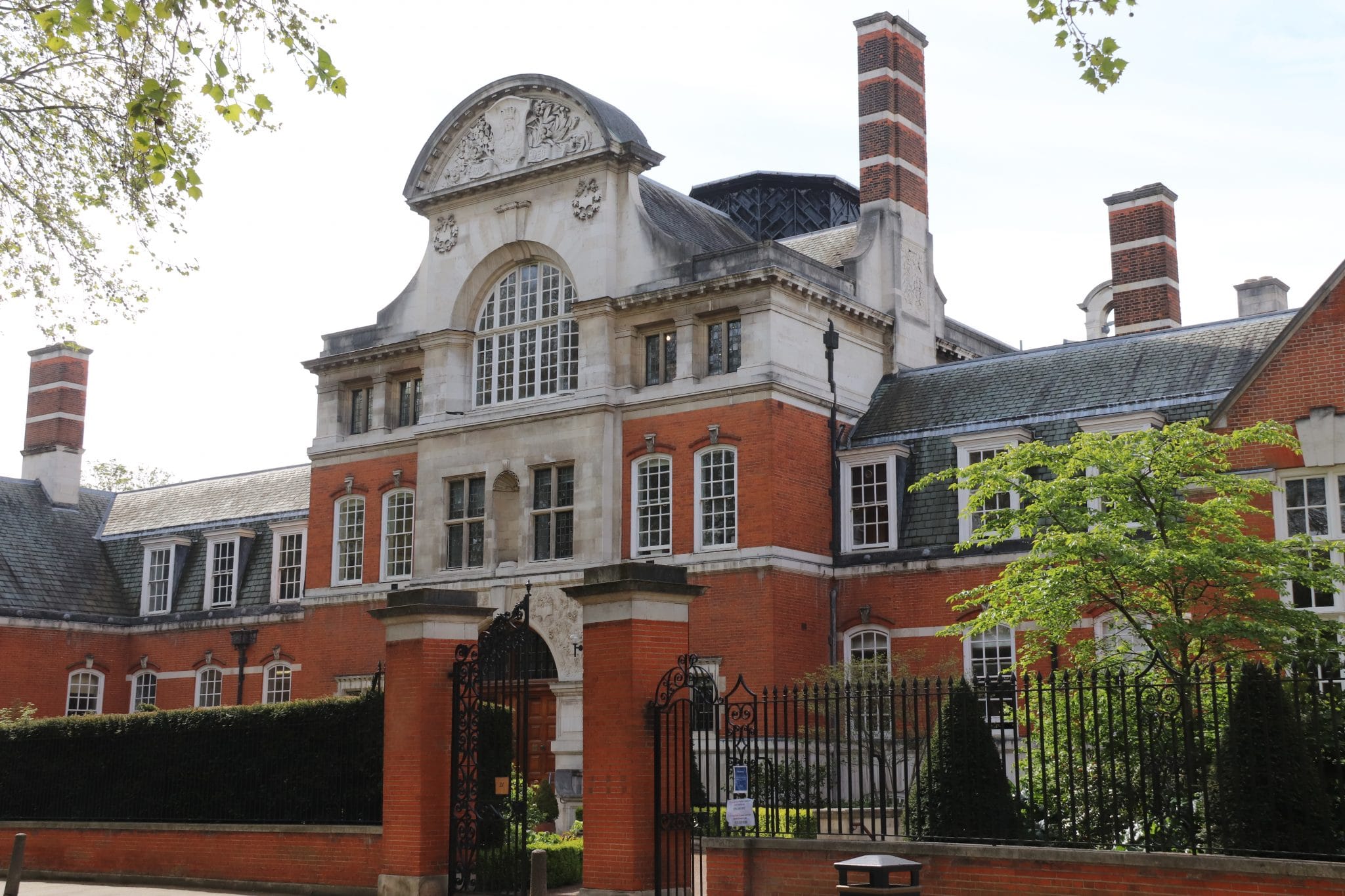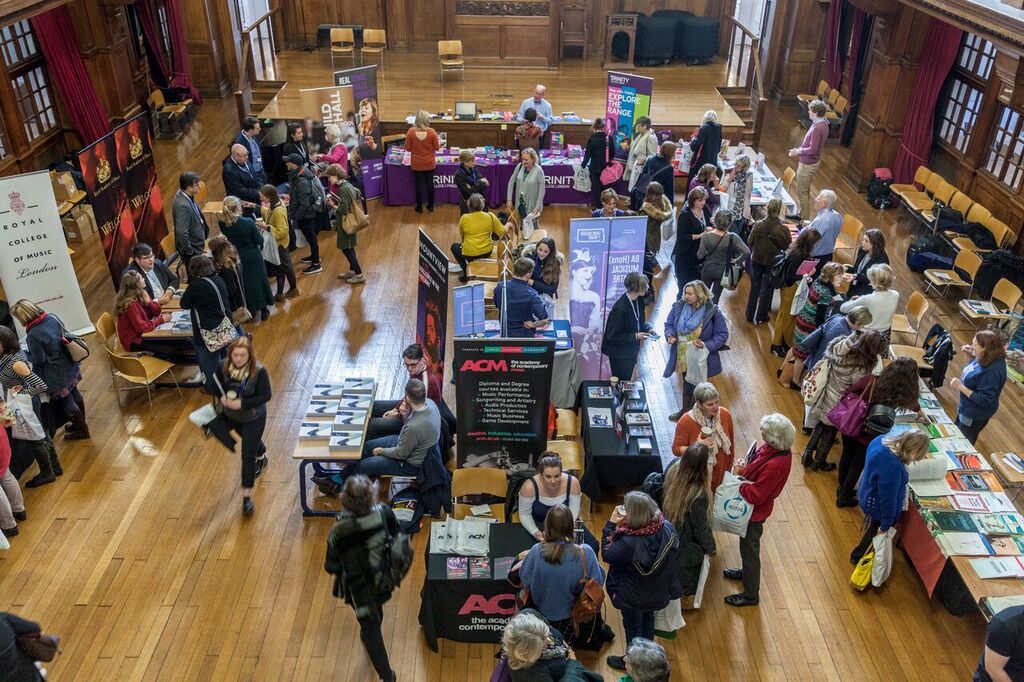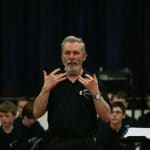Autumn 2021 Conference
'Giving boys a voice' – training the male voice from child to young adult
Sunday 31 October 2021
St Paul's Girls' School, London
- What does being a boy chorister mean and why has this training been so key to a foundational musical education?
- Does this traditional pathway through to vocal maturity confine the singer only to classical singing?
- What happens at puberty and what does the latest research show?
- Should boys keep singing throughout their adolescent years and how is this managed, socially, pastorally and technically?
- Pop, Musical Theatre or Classical - how do we choose repertoire?
- What does a male voice sound like at different ages?
- Can women be successful at teaching boys and men?

Programme
10:00 Arrival
10:45 Welcome
11:00 Working with boy trebles – joys and challenges with Anita Morrison
12:00 Male voices at the onset of puberty with Professor Martin Ashley
13:00 Lunch
14:30 NYCGB Boys' Choir with Lucy Joy Morris and Felix Leach
15:30 When I Grow Up – a Musical Theatre workshop with Alastair Brookshaw
17:00 Finish

The day also includes a breakout session 'Boys... in their own words'
- All four sessions in the main programme will be recorded and available to view online for those who have booked in advance
- In addition, the Musical Theatre workshop with Alastair Brookshaw will be live-streamed on the day
- For safe-guarding reasons, the breakout session will not be recorded and only available for those attending live
About the sessions
Session 1: Working with boy trebles – joys and challenges
The child’s brain is wired for learning. Given a conducive environment, setting up healthy vocal habits for the future and developing vocal skills can be done through experimentation and playfulness. Incorporating movement and imagination, whilst adopting a non-corrective teaching style enables the learner to build skills and knowledge through the exploration of options; empowering them to make personally appropriate choices. Using teaching strategies developed over 30 years of working with boy trebles in a ‘professional’ environment we will explore posture, breathing, onset coordination and articulation. The presentation will include recorded examples and delegate participation.
Session 2: Male voices at the onset of puberty – when, exactly, is the 'onset of puberty'?
Teachers of singing who work with adolescent voices will be unlikely to say that boys’ voices “break”. They will more likely talk of voices changing, but what does that really mean? How do we actively measure puberty? There has been a lot of work on this from John Cooksey to J. M Turner and more recently Michael Fuchs who has come up with a term “peripubertal” to describe the group of boys whose voices had perceptibly deepened but who had not begun puberty according to medical criteria. Martin Ashley will outline the implications of the three-phase system for singing teachers before taking a closer examination of the peripubertal phase. Significant numbers of boy choristers approaching the peak of their “treble” career are at the peripubertal phase and there is some evidence that this is occurring earlier than in the past. It is important that all engaged with the care and development of voices understand the peripubertal phase and its implications for singing.
Session 3: National Youth Choirs of Great Britain – Boys' Choir

Felix Leach
Join NYCGB Boys’ Choir Principal Conductor Lucy Joy Morris and Course Manager Felix Leach for an insight into one model for continued choral singing through the period of voice change. The session will discuss psychology, practicalities and training methods, including repertoire suggestions, and explore what works and what is a challenge for NYCGB.
Session 4: When I Grow Up – A Musical Theatre workshop

Alastair Brookshaw
Join Alastair Brookshaw and four talented young musical theatre students from Trinity Laban, as they work through some beautiful songs, discuss the benefits of an eclectic music education, and figure out how to navigate the challenges young developing male voices face when approaching musical theatre repertoire.
All delegates at the venue and joining the livestream will have the opportunity to submit questions.
Breakout session: 'Boys ... in their own words'
Teachers and their students from schools with strong singing traditions discuss how they keep adolescent boys engaged in singing throughout their school years. Teachers from the singing departments of both private and state secondary schools share conversations/discussions with some of their own pupils. This is a chance to hear directly from adolescent boys themselves including:
- how they came to be singing
- what has maintained their interest
- their favourite repertoire - pop, jazz, musical theatre or classical
- male or female teacher - does it matter?
- how they feel about their voice change and how their teacher or opportunities at school helped them through this period.
Join us for this open conversation. Delegates will be invited to submit questions in advance.



